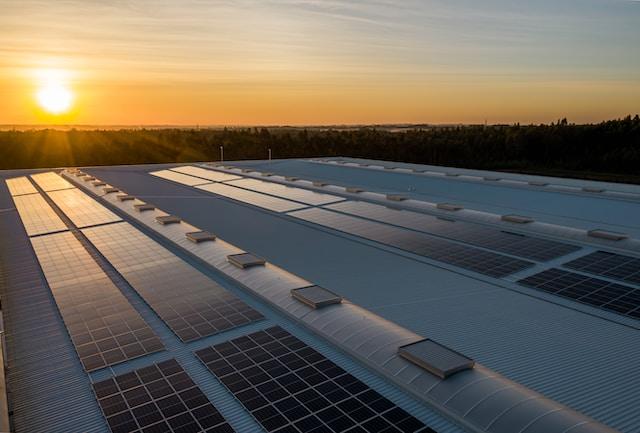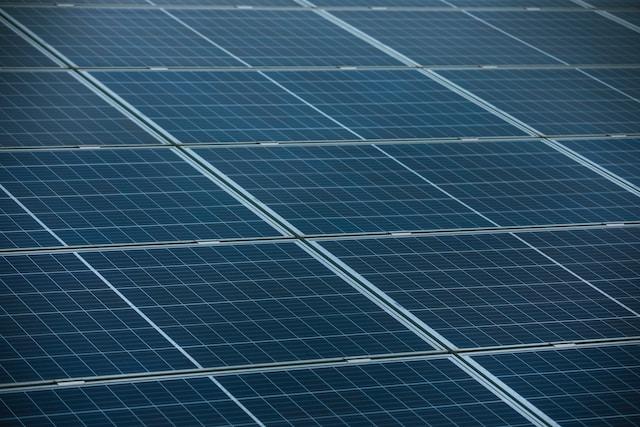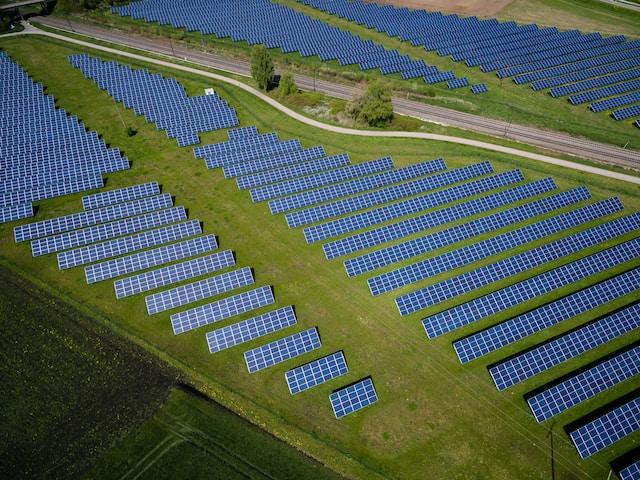
How Solar Panels Can Save You Money: A Comprehensive Guide to Harnessing the Sun's Power
Introduction
Solar panels, a cornerstone of sustainable living, have revolutionized the way we harness the sun's energy, transforming it into clean, renewable electricity. As an eco-friendly alternative to traditional energy sources, solar energy has garnered immense popularity for both its environmental and financial advantages. This article delves into the myriad ways that solar panels can save you money, from tax breaks to reduced energy bills, empowering you to make an informed decision about adopting solar technology. Join us as we explore the world of solar panels and uncover the fiscal rewards that accompany this sustainable solution, while also taking steps towards a greener future. So, whether you're a first-time homeowner or an environmentally-conscious individual, our comprehensive guide will shine a light on the cost-saving potential of solar energy in your life.
Initial Costs and Financial Incentives
While the prospect of solar panel installation might seem daunting due to the associated upfront costs, a myriad of financial incentives make this eco-friendly investment more accessible than ever. On average, the cost of installing a solar panel system ranges between $15,000 and $25,000, depending on the size and location. However, various federal and state tax credits, local incentives, and rebates can substantially reduce this initial expenditure. For instance, the federal solar tax credit, also known as the Investment Tax Credit (ITC), allows homeowners to claim up to 26% of their solar installation costs, significantly offsetting the initial investment. State-specific incentives and rebates, such as net metering, Solar Renewable Energy Certificates (SRECs), and property tax exemptions, can further lower the financial burden. In addition to these incentives, numerous solar financing options exist to help homeowners make the switch to solar power. Solar loans, for example, enable you to borrow the funds necessary for your solar installation and repay the amount over a predetermined period, often with competitive interest rates. Moreover, power purchase agreements (PPAs) and solar leases allow you to essentially rent a solar panel system, with the installation company retaining ownership and responsibility for maintenance while you enjoy the benefits of solar energy at a lower cost. By taking advantage of these financial incentives and financing options, the transition to solar energy becomes a more feasible and budget-friendly endeavor. Embrace the power of the sun and enjoy significant savings on your energy bills, all while contributing to a more sustainable future for generations to come.
Long-term Savings
Investing in solar panels not only contributes to a greener planet but also offers considerable long-term savings that make the initial costs worthwhile. One of the most tangible benefits of solar energy is the significant reduction in energy bills. With net metering, any surplus energy generated by your solar panel system is fed back into the electrical grid, earning you credits that offset your monthly energy expenses. Time-of-use rates provide additional savings by allowing you to sell excess solar power during peak demand periods when electricity prices are highest, further decreasing your energy costs. In addition to reduced energy bills, solar panels can boost your home's value, as properties with solar installations are often viewed as more attractive by potential buyers due to their energy efficiency and eco-friendly attributes. Studies have shown that homes with solar panels sell faster and at a premium compared to those without solar installations. Furthermore, solar panels minimize your reliance on the electrical grid, providing a level of energy independence and security, especially in times of power outages or fluctuations in electricity prices. This autonomy not only offers peace of mind but can also result in financial savings in the long run. Finally, solar panel systems require minimal maintenance compared to traditional energy systems, with only occasional cleaning and periodic inspections needed to ensure optimal performance. This translates to lower maintenance costs over time, as you avoid the expensive repairs often associated with conventional energy systems. In summary, solar panels provide an array of long-term savings, making them a smart investment for a financially and environmentally sustainable future.
Environmental Benefits
Embracing solar energy not only has a positive impact on your wallet but also offers substantial environmental benefits, making it an ideal solution for eco-conscious homeowners. One of the most significant advantages of solar panels is the reduction of your carbon footprint. By generating clean, renewable energy from the sun, solar panels dramatically decrease greenhouse gas emissions that contribute to climate change. In fact, a typical residential solar panel system can reduce carbon emissions by up to three to four tons annually, equivalent to planting nearly 100 trees each year. Another crucial environmental benefit is the decreased reliance on fossil fuels, such as coal, oil, and natural gas. These finite resources have long been associated with pollution, habitat destruction, and geopolitical conflicts. By adopting solar energy, you can lessen the demand for fossil fuels and support the global transition towards sustainable energy sources. This shift helps preserve the environment for future generations and promotes energy independence, ensuring a more stable and secure future. Moreover, investing in solar panels contributes to a greener future by encouraging the growth of the renewable energy sector. As more individuals choose solar power, the demand for clean energy solutions increases, driving innovation and advancements in renewable technologies. This, in turn, helps create jobs and stimulate economic growth in the green sector, while also fostering environmental stewardship. In conclusion, the environmental benefits of solar panels extend beyond individual financial savings, playing a vital role in promoting a more sustainable and eco-friendly future for our planet. So, by opting for solar energy, you not only invest in your own prosperity but also contribute to the well-being of the environment and future generations.
How to Get Started with Solar Panels
Embarking on your solar energy journey can seem overwhelming, but with the right guidance, transitioning to a solar-powered lifestyle becomes a seamless process. The first step in going solar is to evaluate your home's solar potential by assessing factors such as roof size, orientation, shading, and local climate. Online tools and resources, like Google's Project Sunroof, can provide preliminary estimates of your home's solar potential and anticipated savings. Once you've determined that solar power is a viable option for your home, it's essential to choose the right solar panel system. Research various types of solar panels, their efficiency, and warranties to find a system that best suits your needs and budget. It's also crucial to consider the size of the system, as this will directly impact your energy production and overall savings. Next, you'll want to find a reputable solar installer to ensure a proper and safe installation. Seek out reviews, testimonials, and recommendations from friends or family members who have experience with solar energy providers. Request quotes from multiple installers and compare their offers, taking into account their expertise, warranty coverage, and pricing. Finally, after your solar panel system has been installed, it's important to maintain and monitor its performance. Regular cleaning and routine inspections by professionals can help keep your system running efficiently and prolong its lifespan. Monitoring tools, such as mobile apps or online platforms, can also help you track your energy production and savings, making it easy to stay informed and engaged in your solar energy journey. By following these steps, you'll be well on your way to harnessing the power of the sun and enjoying the financial and environmental benefits of solar energy.
Conclusion
In summary, solar panels present a remarkable opportunity to achieve financial savings while embracing a sustainable and eco-friendly lifestyle. Throughout this article, we've explored the various aspects of solar energy, from understanding the technology and initial costs to long-term savings and environmental benefits. Financial incentives, such as tax credits and rebates, combined with financing options, make solar panel installation a viable and affordable option. In the long run, homeowners can enjoy reduced energy bills, increased property value, and lower maintenance costs. Moreover, solar panels contribute to a greener future by reducing carbon emissions and decreasing our reliance on fossil fuels. As you embark on your solar journey, remember to evaluate your home's solar potential, choose the right system, find a trustworthy installer, and maintain your solar panels for optimal performance. With these steps in mind, you're well-equipped to make a positive impact on both your wallet and the environment.
Apr 4, 2023
Share:
Fresh off the Press
Continue reading
Newsletter
Your journey towards a sustainable lifestyle starts here!
Join our newsletter for the latest on solar panels and clean energy breakthroughs.






